Nigeria’s push to diversify its economy has gained strong momentum. Government initiatives aim to reduce reliance on crude oil and strengthen non-oil sectors. Programs like the Central Bank of Nigeria’s RT200 and incentives from the Nigerian Export Promotion Council (NEPC) encourage exporters, boost foreign exchange inflows, and integrate local businesses into global markets.
Fidelity Bank Plc has emerged as a key private-sector partner in this drive. Through its flagship initiative, the Fidelity Nigeria International Trade & Creative Connect (FNITCC), the bank links Nigerian exporters with international buyers, diaspora markets, and strategic investors. By doing so, it helps the country mitigate oil revenue shocks, support small businesses, and showcase Nigerian creativity on a global stage.
Beyond Commodities: Focusing on Value-Added Sectors
FNITCC reflects Fidelity Bank’s belief that Nigeria’s competitiveness depends on value-added goods and services. The platform promotes agriculture, consumer-packaged goods, fashion, cosmetics, fintech, and creative industries.
Moreover, government policies now emphasize local processing rather than exporting raw commodities. For example, recent directives on shea butter encourage local refinement and packaging. This approach supports industrialization, creates jobs, and captures more value domestically. FNITCC complements these efforts by connecting upgraded products to international buyers.
Events are multi-sectoral and immersive. They include exhibitions, breakout sessions, diaspora investment panels, workshops, art displays, and fashion performances. Importantly, the platform ensures that exporters meet global standards while accessing financing for growth.
Dr. Nneka Onyeali-Ikpe, Managing Director and CEO of Fidelity Bank, said:
“Since 2022, FNITCC has grown beyond a non-oil export platform. It now showcases the immense value Nigeria offers to global markets.”
FNITCC on the Global Stage: London, Houston, and Atlanta
The journey began in London in November 2022 at Novotel London West. The inaugural event attracted over 100 exhibitors, 90 speakers, and 1,000 daily attendees. Furthermore, it generated trade deals worth about $250 million, demonstrating that Nigerian businesses can compete internationally with proper exposure and support.
In October 2023, FNITCC moved to Houston, Texas. The city hosts a large Nigerian diaspora and a thriving business ecosystem. FNITCC Houston featured over 160 businesses in fintech, agriculture, fashion, and creative industries. Notably, JohnVents Industries received a $40 million pre-export finance facility, arranged by Afreximbank with Fidelity Bank as the local agent. This highlighted how trade promotion paired with finance access delivers measurable results.
This year, FNITCC will be held in Atlanta, Georgia, from September 18–20, 2025. Atlanta is a hub for Black entrepreneurship and diaspora investment, making it ideal for promoting Nigerian products. Fidelity Bank is partnering with Amplify Africa, organizers of AFRICON, to further maximize reach.
Onyeali-Ikpe added:
“FNITCC continues to create platforms that drive economic growth, creativity, and sustainable trade. We are excited to host the third edition in Atlanta, expanding global access for Nigerian businesses.”
Consolidating Success and Expanding Impact
Between London and Houston, FNITCC facilitated over $500 million in trade deals. Considering Nigeria’s non-oil exports remain under $5 billion annually, this is a remarkable achievement.
FNITCC Atlanta expects more than 3,000 participants, including exporters, U.S. buyers, policymakers, investors, and development institutions. The event will feature B2B matchmaking, policy dialogues, diaspora investment roundtables, and sector-specific workshops. Key sectors include agriculture, consumer goods, energy minerals, fashion, beauty, and creative services.
By linking exporters with financiers and international buyers, FNITCC fills the ecosystem gap Nigerian businesses often face when entering global markets.
Nigeria’s FX Outlook and the Case for Diversification
The timing of FNITCC is strategic. The naira has stabilized recently due to policy reforms and improved foreign inflows. As a result, investor confidence has increased. Additionally, global attention is returning to Nigeria, making non-oil export growth essential.
Nigeria cannot depend solely on crude oil as the world transitions from fossil fuels. Building resilient export pillars ensures sustainable growth, job creation, and stable foreign exchange inflows. FNITCC contributes by showcasing value-added goods, offering structured access to global markets, and linking exporters with international buyers.
A Collaborative Approach to Economic Growth
FNITCC uniquely combines policy, finance, and culture. The platform complements government initiatives and continental frameworks such as AfCFTA. Furthermore, it addresses financing gaps through partnerships with institutions like Afreximbank.
By highlighting Nigeria’s creative and service sectors, fashion, fintech, music, and art, FNITCC strengthens the country’s soft power while generating foreign exchange. More than an exhibition, it is a platform for national transformation. It bridges government policy with private-sector action and equips exporters to compete globally.
From London to Houston and now Atlanta, FNITCC has become a critical institution driving Nigeria’s non-oil export growth. Consequently, it moves the country closer to a resilient, export-led economy.










